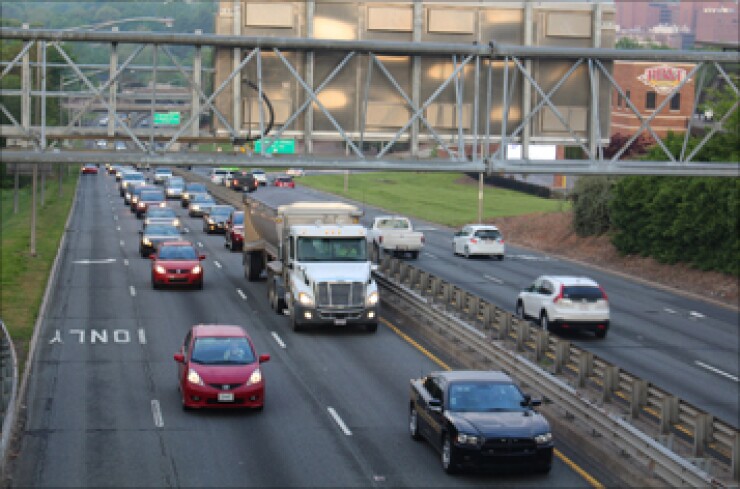
DALLAS — The Senate Environment and Public Works Committee will vote in June on a bipartisan, six-year surface transportation bill to avoid a complete shutdown of highway and transit projects, chairman Sen. Jim Inhofe, R-Okla., and ranking minority member Sen. Barbara Boxer, D-Calif., said on Wednesday.
"Without congressional action by May 31, vital projects across the nation will come to a grinding halt," Inhofe and Boxer said in a release. "This is unacceptable."
Transportation Secretary Anthony Foxx told state transportation officials earlier this week that federal highway aid would not continue at the end of May unless Congress renews the spending authority that is set to expire then.
The two Senators said they plan to finalize negotiations with "the big four," including Sens. David Vitter, R-La., and Tom Carper, D-Del., and work with committee members to come up with a "consensus bill" in the next few weeks.
"We can no longer wait on Congress," Inhofe and Boxer said.
While other congressional panels debate how to fund a multiyear spending bill, "we believe it is in the best interest that this committee moves forward with consideration of a long-term surface transportation reauthorization bill," they said.
Sen. Orrin Hatch, R-Utah, chairman of the Senate Finance Committee, has proposed a one- or two-month extension of the HTF's spending authority and then a longer extension through the end of calendar 2015. The longer patch would require a transfer of up to $11 billion to the HTF from the general fund.
Inhofe and Boxer said extending the HTF through 2015 would send the wrong message.
No transfer would be required if the current spending reauthorization is extended by a month or so with HTF cash balances and incoming revenues so that multiyear bill can be developed, they said.
"We owe it to our nation's economy to send a strong signal that Congress is going to maintain the backbone of America's commerce and national security," Inhofe and Boxer said.
Congress has transferred some $65 billion into the HTF since 2008 as gasoline and diesel tax revenues have fallen behind expenditures.
Boxer was chairman of the EPW Committee in 2014 when it passed a six-year transportation bill that provided the same funding as in fiscal 2015 with small increases each year linked to inflation. The measure, which did not include a funding proposal, never received Senate consideration.
Meanwhile, Sen. Bob Corker, R-Tenn., on Wednesday echoed Sen. Chuck Schumer, D-N.Y., and other Senate Democrats in their criticism of Republican leadership over lack of action on multiyear transportation funding.
"I will be stunned if the Republicans deal with the Highway Trust Fund responsibly," Corker told reporters at a breakfast session sponsored by the Christian Science Monitor. "It's not going to happen."
Corker, who last year proposed a 12 cent per gallon increase in the federal gasoline tax, said the short-term HTF extension favored by some in Congress is "incredibly irresponsible."
"The first step to showing that we can responsibly deal with the fiscal issues that matter is the highway bill, and yet it very much appears to me that there will be a kick-the- can-down-the-road" action, he said.
Meanwhile, the Committee for a Responsible Federal Budget said in a new report that the HTF could be put on the path toward a sustainable, solvent future with a one-time general fund transfer of $25 billion and a 50% increase in the gasoline tax.
Transportation funding would be provided at current levels through fiscal 2017 under the CRFB plan, with HTF expenditures linked thereafter to the previous year's tax collections plus interest.
The $25 billion transfer would pay for the legacy costs of the HTF's pre-2015 obligations with much of the remaining revenue gap covered by $100 billion generated over 10 years by increasing the federal gasoline tax to 27.4 cents per gallon and the diesel tax to 33.4 cents, CRFB said. Limit future highway spending to income, the group said.





